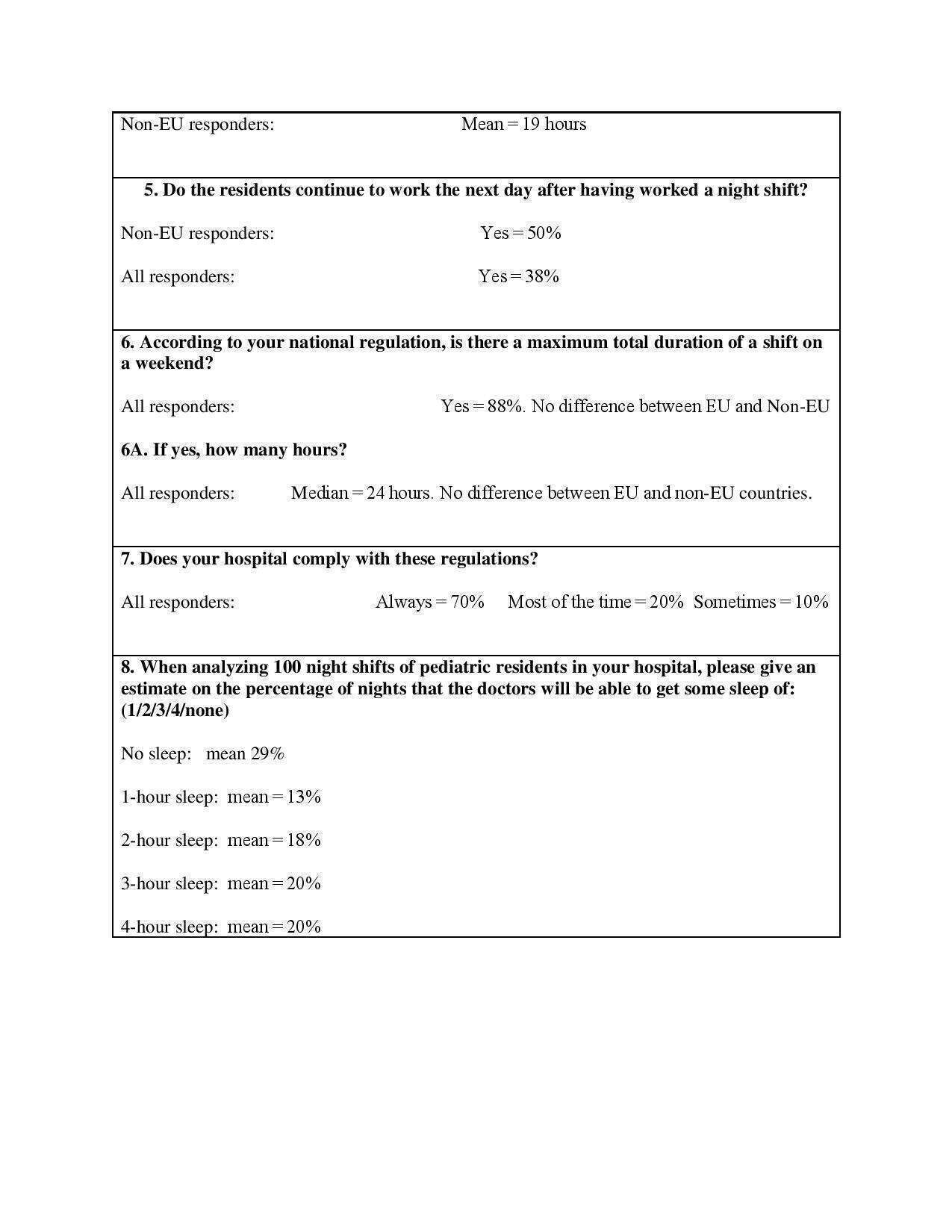Effects of fatigue and sleep deprivation on Residents and Quality of patient care let to a regulation of residents’ schedules. The European Council stated in 2003 that average working time should not exceed 48 hours every 7-day period; a daily rest of 11 consecutive hours per 24-hour period; and a rest period for every 6 hours work by legislation or collective agreement.
No data on working hours of pediatric residents in European Union (EU) or compliance with regulations are available.
In cooperation with the Scientific Advisory Board of the European Pediatric Association, questioners about work schedules and impact of shift regulation on residents’ formation were sent to 25 presidents of national pediatric associations (17 EU and 8 not EU).
Data revealed significant differences in night shifts regulations and maximal weekly hours between EU and non-EU countries, and showed that were not fulfilled in all EU countries (in 92% shift was longer than 11 hours and 31% of residents continued to work after the night shift). In addition, the effects of regulations on patient care and residents’ quality of life were ambiguous (only five of 17 presidents reported a positive influence on quality of residency). Institutions coped with increased workload by augmenting the number of residents (30%), and increasing the workload for senior pediatricians (60%).
We conclude that the effort was not sufficient to fulfill European regulations, and further effort is needed to address the various and opposing needs and interests of patients, both young and experienced pediatricians, and hospital managers. - Copy 3.jpg)


